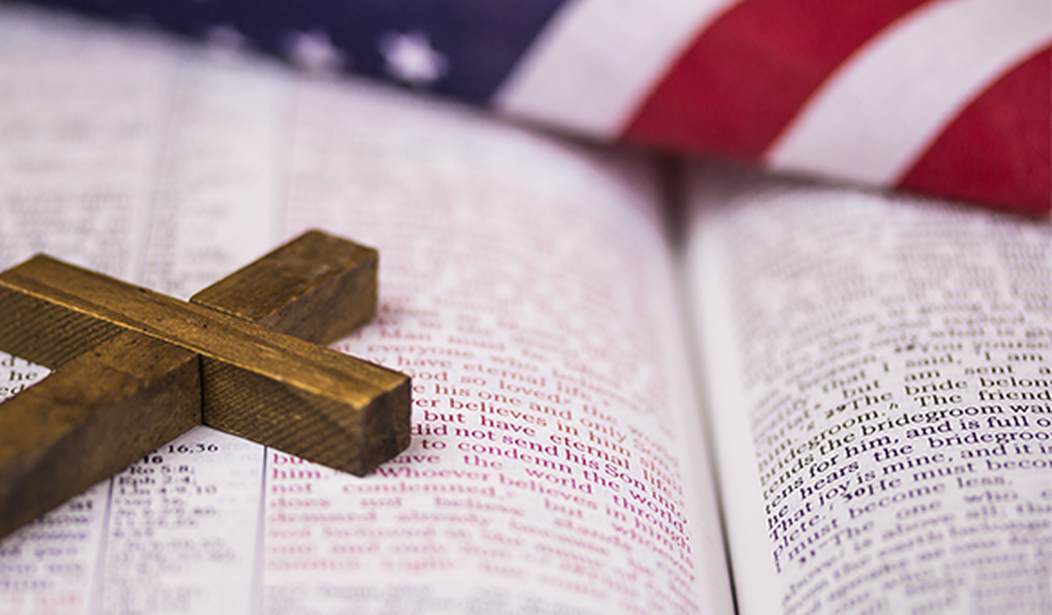Editor's Note: This column is co-authored by Joseph P. Infranco, Senior Counsel and Vice President for Alliance Coordination at Alliance Defending Freedom.
The German submarine struck in the wee small hours, and despite all the precautions of its captain and crew, the USS Dorchester was hit hard and deep, and went down like a stone. The torpedo destroyed the ship’s electrical system, plunging those of the 900-plus soldiers aboard still alive into near total darkness, even before it took them down into the icy sea.
Only 230 would survive the sinking; many of them owed their lives at least in part to four chaplains who moved quickly amid the pitch-black corridors and general panic to herd them up on deck, then help them into life jackets and lifeboats. There weren’t enough of either.
When the life jackets ran out, all four of the chaplains instantly took off theirs. Though they represented four very different faiths, Methodist George Fox, Rabbi Alexander Goode, Catholic Priest John Washington, and Dutch Reformed Clark Poling made no effort to get their own last hope of survival into the hands of someone who shared their religious convictions; they just gave their jackets to the nearest outstretched hand.
None of the four tried to board one of the already overcrowded boats. They were last seen arm-in-arm, standing on the fast-tilting deck, singing hymns and praying together as the cold, dark waters of the North Atlantic rapidly rose to engulf them.
In the years after that February 1943 tragedy, the nation honored the chaplains’ sacrifice with medals and monuments, their memory paintings and books, even an official day of remembrance. But somehow, many today have lost their respect for a particularly crucial aspect of their heroism that dark night.
Recommended
To Americans of the World War era, the importance of faith—and admiration for those who held to their faith even in the face of chaos, fear, and death—was a given. Not everyone was a churchgoer, of course, but most recognized the critical role people of faith and their love of religious freedom had played in the nation’s founding.
They also understood, almost intuitively, that religious liberty was the linchpin that held all other civil liberties in place. After all, if you can take away a man’s right to honor and follow his conscience, it’s short work to rob him of his freedom to speak, to gather, to bear arms.
Polls seem to indicate that Americans today don’t necessarily share that understanding with the “Greatest Generation.” And efforts outside the military to crush religious freedom indicate that faith—even in this most recent time of chaos, fear, and death—no longer enjoys the same respect … or protections.
The Military Religious Freedom Foundation, for example, has moved aggressively during the coronavirus quarantine to urge crackdowns on overt expressions of faith by chaplains—acting on and encouraging the complaints of servicemen and women who are undaunted by foreign adversaries but apparently deeply afraid that a military chaplain might actually share his or her faith in a military setting.
Since COVID-19 restrictions went into effect, MRFF has filed complaints against chaplains around the country who have shared video sermons on military installation webpages (a legally approved forum), persuaded Facebook to remove videos of chaplains ’prayers, and pushed for formal charges against a Korea-stationed chaplain who shared a religious book with his subordinates as a ministry tool (no chaplain was required to read, much less use, the book).
The group even demanded and received a public apology from a Christian who shared hymns and encouragement from the balcony of his military housing apartment.
Presumably, MRFF and the military personnel it represents would want members of the military and their families to find comfort, strength, and hope during these difficult days of world pandemic—they just don’t want those encouragements coming from God, or from those who take God seriously.
Clearly, these activists have little appreciation for the critical role chaplains have long played in ministering to the physical, emotional, and spiritual needs of the men and women of our armed forces. One almost wonders if, offered a lifejacket that night when the Dorchester went down, they’d have felt duty-bound to reject it as some unseemly expression of those chaplains’ faith. Or held out until some worthy atheist was willing to part with his.
These anti-Christian accusations by the MRFF are not only unjust to today’s military chaplains—they present an unworthy response to the legacy of the many courageous and conscientious chaplains who have served our military across the centuries … and reveal a sad contempt for America’s rich heritage of religious freedom.
Dr. Ron Crews is executive director of the Chaplain Alliance for Religious Liberty. Joseph Infranco is senior counsel and vice president for alliance coordination with Alliance Defending Freedom.

























Join the conversation as a VIP Member